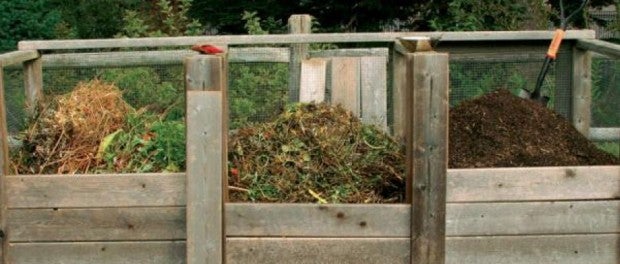Composting Methods to Try on the Farm

One of the most useful tools in the arsenal of farmers is composting. In addition to having environmental benefits, composting is good for the garden as well. By taking natural waste products and allowing them to break down prior to adding them to soil, gardens are infused with nutrients that aid in plant and crop growth. Composting also saves money that would otherwise be spent on fertilizer or garbage pickup, making the process even more appealing.
If you worry about the amount of time, energy, and work associated with composting and therefore feel it may not be something useful around your farm, think again. There are several different types of composting methods and there is sure to be one that fits in with both your lifestyle and farm schedule. Depending on your level of commitment, how much you wish to invest, and what you expect in return, there is still a way to make composting work for you.
If you’re in a hurry to get into the composting game, then hot composting may be the option for you. Hot composting does require the most effort but it also guarantees the quickest return. Hot composting is done in a series of three slatted bins which you will need to buy or build. In the first bin is material for future composting, such as brown material (dried plant matter). The middle bin is where green material (fresh grass clippings, vegetable scraps) is added to a ratio of two parts brown to one part green. Water is then added until moist and the actual composting occurs here with a little help from you in terms of aerating with a pitchfork. The third and final bin is the ready bin which is essentially cooling in storage as it awaits use. Though three bins is ideal, it is possible to hot compost in one bin when composting in small amounts. The one bin method consists of a closed bin and is physically easier to do, which is important to those of us who put in a hard enough day on the farm as it is. In order to use one bin, add materials at the same 2 to 1 ratio described above. Add some water and turn materials on a weekly basis for best results.
Since farm work itself is time consuming and often exhausting, you may want to cut yourself some slack, making composting as easy as possible. In this case, cold composting could be the way to go. The fact of the matter is that composting will occur whether or not you break your back to get it done, although the time it takes is affected. In order to cold compost, you want to add pieces of materials that are small so they will compost faster. Also useful is a bit of water, occasional turning, and use of a cover, but if you are not inclined to do/add these things, time will do the work for you, albeit not as quickly as you might like, sometimes taking up to a year to complete.
Another very popular composting method that is easy on the human body is worm composting to create vermicompost. This occurs when worms feast on scraps and produce casings. These casings are actually very useful for gardening as the worms are dining on organic matter and therefore producing waste that is rich in nutrients such as nitrogen, calcium, magnesium, phosphorous, potassium, and other trace minerals. Worm composting should be done in a bin and takes about 3-5 months of worm work but not a lot of work on your part. Food scraps should be added to the bin and once a few months pass, the bin will need to be harvested. To do this, you must first stop feeding worms for a couple of weeks. At this time, worms and casings will need to be pushed to one side of the bin, ideally with some sort of a divider containing them on that side. On the other side, clean dirt and food scraps should be inserted. Remove the divider and allow worms to fully migrate to the fresh matter before harvesting the completed compost from the other side. Though earthworms are commonly used, other good options for composting include redworms, centipedes, sow bugs, and other soil–dwelling creatures.
The bottom line when it comes to composting is simply that it is too beneficial not to do. Even if your compost is cooking low and slow via cold methods, you are still ahead of the game by composting in the first place. Though the demands of the farm are many, compost is as easy or difficult as you make it, accepting as much attention as you’d like to give it but also taking as little as you can spare. Give it a try and you just might find yourself sold on a new way of life.
Find other composting resources at https://www.beginningfarmers.org/information-about-composting/








 Your Privacy Choices
Your Privacy Choices
Leave a comment